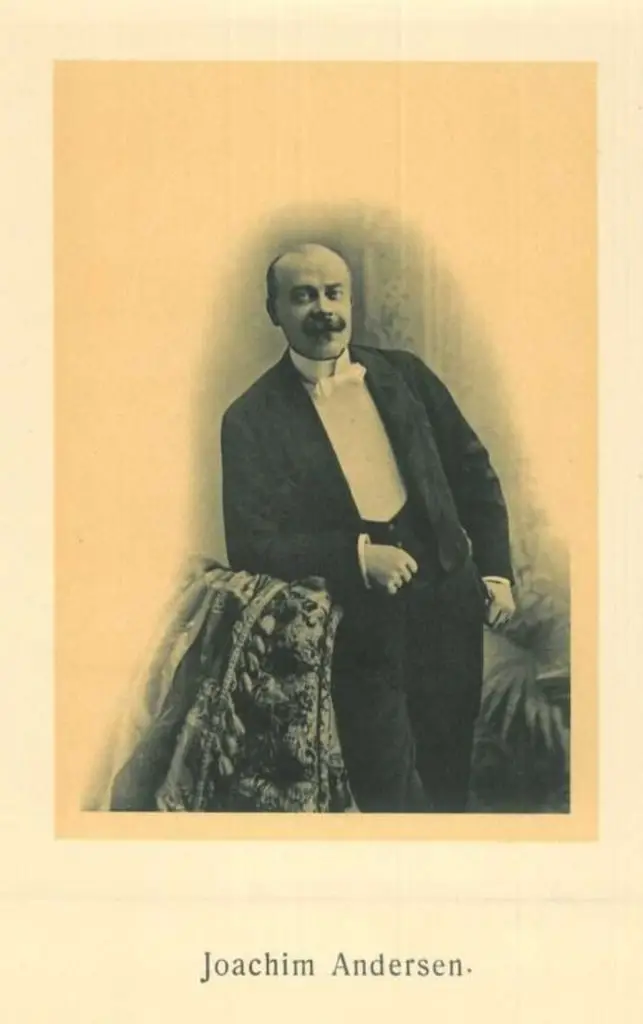
Carl Joachim Andersen (1847 – 1909)
Joachim Andersen was a seminal Danish flutist, composer, and conductor, known for co-founding the Berlin Philharmonic and enriching flute repertoire with his extensive compositions and etudes.
Early Life and Musical Beginnings
Carl Joachim Andersen was born in 1847 in Copenhagen, Denmark, into a musically inclined family. His father, Christian Joachim Andersen, was a significant influence on his early musical education. Andersen displayed prodigious talent from a young age, performing at the Danish theater, Casino, alongside notable musicians such as the harpist Franz Pønitz. By the age of 13, he was the first flutist in an orchestra in Copenhagen under the baton of Niels Gade.
Professional Development and Contributions
Andersen’s career took a pivotal turn when he joined the Royal Danish Orchestra in 1869. Seeking broader opportunities, he moved abroad in 1878, spending time in Saint Petersburg with the St. Petersburg Philharmonic Orchestra before ultimately settling in Berlin. There, he joined Bilse’s Band, which later evolved into the Berlin Philharmonic, an institution he co-founded and for which he also served as a conductor.
Innovations in Flute Music
Joachim Andersen is best remembered for his significant contributions to flute music, particularly through his compositions and pedagogical works. His etudes and pieces are an integral part of flute pedagogy, revered for their technical demands and musicality which remain central to the development of flutists worldwide.
Challenges and Later Years
In 1893, Andersen’s career as a flutist was abruptly halted due to paralysis of his tongue, which forced him to focus solely on composition and conducting. He returned to Copenhagen and founded an orchestra school in 1897, where he continued to influence the musical world until his death in 1909.
Andersen’s Flute Works
Joachim Andersen composed extensively for the flute, with works that are still highly valued in flute repertoire:
- Op. 33, 35, 37, 41, 44, 45, 46, 47, 48, 49, 50, 51, 52, 53, 54, 55, 56, 57, 58, 59, 60, 61, 62, 63 – These include a variety of etudes, salon pieces, and concert pieces that challenge and delight flutists.
- Non-Opus Pieces include dances, marches, mood pieces, and more, showcasing his versatile composition style.
Legacy and Importance
Joachim Andersen’s influence on flute music is profound. His works not only enhance the technical skills of flutists but also enrich their musical expression. Andersen’s legacy is cemented by his role in founding the Berlin Philharmonic, his extensive compositions, and his impact as an educator, making him a pivotal figure in the classical music and specifically flute music history.
Birthday of Joachim Andersen

